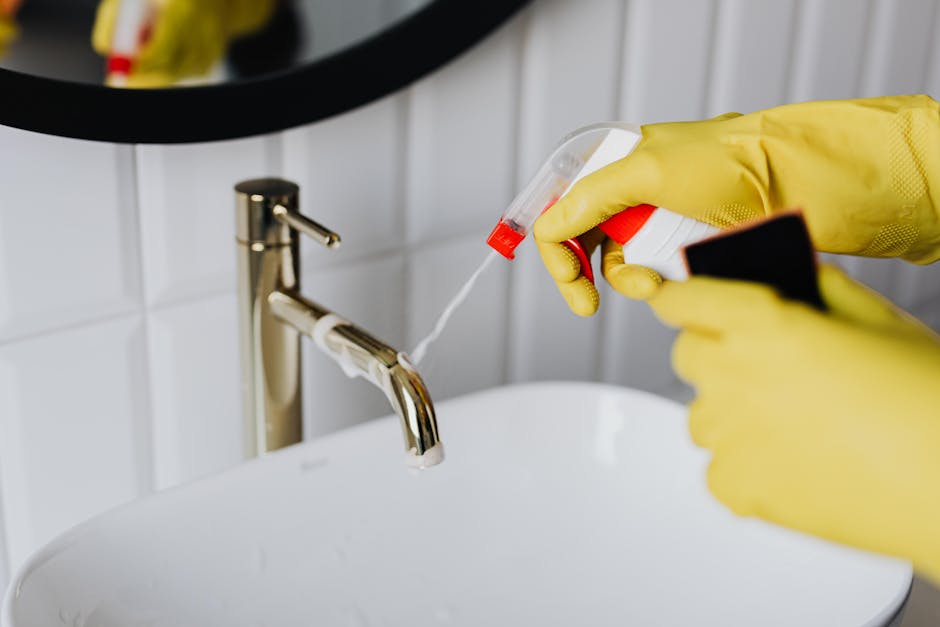Introduction to Concrete Cleaners
Concrete cleaners are specialized products designed to remove dirt, stains, and grime from concrete surfaces. They work by breaking down and lifting contaminants from the concrete, making it easier to clean. Concrete cleaners are essential for maintaining the appearance and longevity of your concrete surfaces, whether it’s a driveway, patio, or sidewalk. Using the right concrete cleaner can help preserve the integrity of your surfaces and keep them looking fresh and clean.
Understanding the Composition of Concrete
Concrete is a mixture of materials like cement, sand, and gravel, making it a sturdy and durable material. The composition of concrete can vary depending on its intended use, with some types containing additional additives like fibers or chemicals to enhance its properties. These additives can improve aspects like strength, durability, and workability. Understanding the composition of concrete is essential as it impacts how well the material performs and how it responds to different cleaning agents.
Common Concrete Stains and Residues
To keep your concrete surfaces looking clean and fresh, it’s essential to understand the common stains and residues that can affect them. These include oil stains, grease marks, mold, mildew, and mineral deposits like efflorescence. Each type of stain requires specific cleaning methods to effectively preserve the integrity of your concrete.
What Are Concrete Cleaners and How Do They Work?
Concrete cleaners are specially formulated products designed to remove dirt, grime, and stains from concrete surfaces. They work by breaking down and dissolving the contaminants on the surface, making it easier to wash them away. These cleaners typically contain chemicals that help to lift and loosen dirt, oil, grease, and other substances from the concrete. They are often used in conjunction with scrubbing or pressure washing to ensure a thorough cleaning. Some concrete cleaners also have protective properties that can help preserve the surface and prevent future staining.
Types of Concrete Cleaners
Concrete cleaners are typically categorized into two main types: acidic cleaners and alkaline cleaners.
- Acidic cleaners work by chemically reacting with the minerals in the concrete to dissolve dirt, grime, and stains. They are effective in removing efflorescence, rust stains, and mineral deposits.
- Alkaline cleaners, on the other hand, work by breaking down organic materials like grease, oil, and dirt. They are great for general cleaning and maintenance of concrete surfaces.
Choosing the right type of cleaner depends on the specific stains or dirt you need to remove from your concrete surfaces.
Choosing the Right Concrete Cleaner for Your Needs
When selecting a concrete cleaner, consider the type of surface you are cleaning. Different cleaners are designed for specific surfaces like driveways, patios, or sidewalks. Acid-based cleaners work well for removing tough stains, while biodegradable cleaners are gentler and environmentally friendly. It’s essential to match the cleaner to your surface to effectively clean and preserve it.
Application Methods for Concrete Cleaners
To apply concrete cleaners effectively, you can choose between spraying or brushing the solution onto the surface. Spraying works best for larger areas, while brushing is ideal for spot treatment or smaller sections. Make sure to follow the manufacturer’s instructions for the correct dilution ratio and application technique. Efficient application ensures thorough coverage and maximizes the cleaning potential of the product.
Precautions and Handling Tips
Always wear protective gear like gloves and safety goggles when using concrete cleaners to prevent skin and eye irritation. Ensure proper ventilation in the area you are working in to avoid inhaling harmful fumes. When handling concrete cleaners, follow the manufacturer’s instructions carefully for the best results. Avoid mixing different types of cleaners as this can create dangerous chemical reactions. After using the cleaner, rinse the area thoroughly with water to remove any residue. Remember to store concrete cleaners in a cool, dry place away from children and pets to prevent accidents.
Long-Term Surface Preservation with Concrete Cleaners
Concrete cleaners help preserve your surfaces in the long term by removing dirt, grime, and stains that can degrade the appearance and integrity of your concrete. By effectively cleaning and maintaining your concrete surfaces, you can extend their lifespan and keep them looking fresh and new for years to come. Regular use of concrete cleaners can prevent the buildup of mold, mildew, and other contaminants that can cause damage over time. Choosing high-quality concrete cleaners tailored to your specific needs is essential for achieving the best results in surface preservation.
Conclusion: Maintaining and Protecting Your Concrete Surface
To maintain and protect your concrete surface, regular cleaning is essential to prevent stains and buildup. Use a pH-neutral cleaner or mild soap with water for routine cleaning. For tougher stains, consider using a specialized concrete cleaner specifically formulated for the type of stain you’re dealing with. Additionally, applying a concrete sealer every few years will help protect your surface from water, oil, and other contaminants, prolonging its lifespan. By following these simple steps, you can ensure that your concrete surfaces remain clean, durable, and aesthetically pleasing for years to come.


